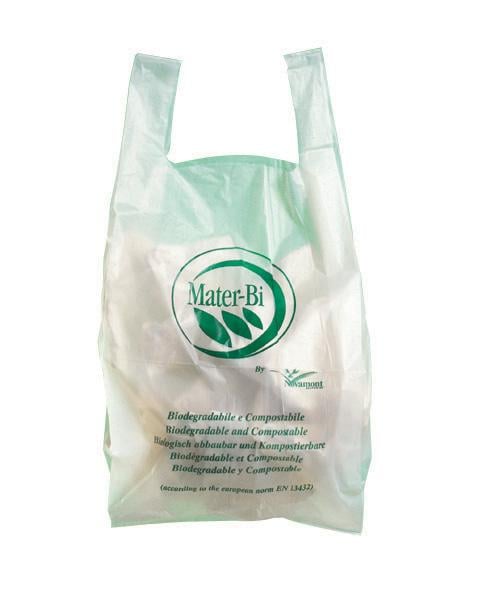Italian biotech Novamont has partnered with The Barbier Group, a French plastic films manufacturer, to develop a new type of lightweight bioplastic bag for fruits and vegetables as an alternative to traditional non-biodegradable and non-compostable plastic packaging.
The new material, dubbed Ma-Ter-Bio (the bag for planet Earth), is made of plant based feedstock to meet new French legislations restricting the use of traditional plastics. According to Novamont, the material is produced from locally sourced starch and sunflower oil and can be home composted. The firm claims the percentage of renewable content of Ma-Ter-Bio is at least 35%, but can be increased to more than 50%.
The Barbier Group, the largest French producer of plastic films and sixth largest in the European Union, sells polyethylene sheeting for agriculture and industry as well as bags for the supermarket sector (for vegetables and fruits, waste collection, with soft handles). The company’s circular economy efforts have led it to develop a number of products from both recycled and biodegradable/compostable materials for over the past 15 years.
Novamont, founded in 1989, built its growth on the principles of the circular bio-economy and the production of bioplastic materials alternative to traditional plastics from fossil sources. The partnership finds practical application in the adoption by major European cities and others of a system of organic waste collection and management where litter becomes a resource again through industrial as well as home composting.
ADOPTION OF BIODEGRADABLE PLASTICS TAKES ROOT
The rapid emergence of bioplastics is one of the major stories in materials in recent years,
according to BCC Research analyst Jason Chen.
“Once billed as biodegradable plastics, the theme for renewably sourced plastics has shifted dramatically in recent years to sustainability. To maximize market impact, the growing trend is to compound bio-based plastics with oil-based plastics to extend bioplastics’ reach into markets for durable products used in plastic bags, cars and cell phones, among other applications,” he says.
Bioplastics, as a rule, come from renewable resources such as crops, biomass or algae. With biodegradable (also called compostable) plastics, the focus is on end-of-life or disposal, independent of carbon source standards, Chen explains.
“The industry defines a fully biodegradable polymer as a polymer that is completely converted by microorganisms to carbon dioxide (CO2), water and humus. Some, but not all, bioplastics are also biodegradable,” he
says.
WHAT IS COMPOSTING?
A bioplastic must satisfy three criteria to be considered compostable, Chen says.
“It must break down into carbon dioxide (CO2), water and biomass at the same rate as cellulose. The plastic decomposition products must be indistinguishable in the compost from other biomass material after a fixed time, and the residual biomass material must not be harmful to animals or plants in its final form,” he
explains.
A compostable product must be capable of undergoing biological decomposition in a compost site such that the plastic is not visually distinguishable and breaks down to carbon dioxide, water and inorganic compounds, and as biomass at rates consistent with known compostable materials such as cellulose, Chen notes. Compostable plastics are biodegradable under controlled composting conditions, he adds.
FRANCE TO MEET COMPOSTING LAW IN 2017
New French legislation restricting the use of traditional plastics begins on January 1, 2017. All self-service plastic fruit and vegetable bags in French supermarkets must be home-compostable, or able to be disposed with household food waste and sent for composting. The percentage of renewable component for composting must meet a minimum 30% in the first year of the new law, then 50% within three years and, finally, to 60% by 2025.
The new fruit and vegetable bags currently are undergoing blind tests in several European supermarket chains. The products include features such as transparency, tear resistance, resistant to breakage and breathability.




